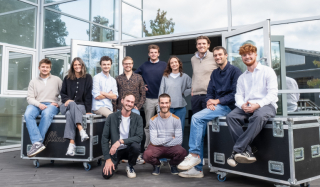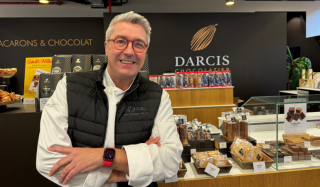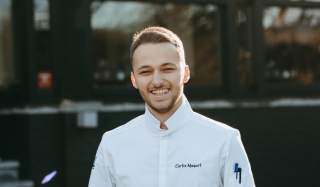
Dialogue, exchange, proximity, collaboration, corporation and much more. In Wallonia, it is not just the population density that brings people together, it is a tradition of openness and friendliness that makes this community of more than 3.5 million people a huge social network rooted in reality, connected to the world and whole-heartedly open.
This wonderful openness is second nature for Walloons. Wallonia's ideas, products, creations, inventions and talents are greatly appreciated around the world and in all fields. Inspired Wallonia is first and foremost a sharing region.
International solidarity
A water power plant in Congo, a hospital in Benin, a class in Senegal, to name but a few. Wallonia-Brussels' development cooperation aims to meet the needs of people in the South and improve local skills. It promotes decentralisation and proximity between the local stakeholders.
Wallonia-Brussels International (WBI) and the Association for the Promotion of Education and Training Abroad (APEFE) recognise the importance of initiatives in which citizens can take action and come together effectively in concrete international solidarity actions. As a result, they support several programmes that work to create a sustainable partnership with multiplier effects between development NGOS, cities, communes, provinces, inter-communal companies, workers' or farmers' organisations, mutual societies, arts universities and colleges in Wallonia-Brussels, Wallonia-Brussels associations of citizens of foreign origin on the one hand, and their partners in one or more developing counties on the other.
Wallonia-Brussels International also supports a number of development education projects.
Some concrete examples
- A programme to support a physiotherapy and medical rehabilitation programme, created in Benin, developed in Burundi and recently launched in Burkina Faso, is expanding throughout Sub-Saharan Africa. Supported by the UCL, the APEFE and WBI, it is a wonderful example of collaboration between North and South, as well as between Southern countries, as a reference centre was opened in 2014 in the CHU in Bujumbura, with recruits trained in Benin. The aim of the strategy is to make Burundi a centre of excellence in medical rehabilitation for the Great Lakes Region.
- It's not easy to give lessons every day in the rural areas of Africa, with unstable material conditions and overcrowded classes: the Francophone Initiative for Distance Teacher Training (IFADEM) helps to improve the skills of teachers teaching French as well as mathematics, science, etc. How? By combining active educational methods, new technologies, tailor-made training content and both local and international expertise.
- A classroom on wheels in Haiti: this is the innovative idea for mobile training set up by the APEFE with its Haitian partners. This fully-equipped container placed on a lorry allows cooking and patisserie skills to be taught in remote areas. Other training is due to follow, first in cosmetology (hairdressing, manicures, etc.) and then in agricultural techniques, reinforced masonry (to withstand earthquakes), car mechanics, cutting/assembly, office equipment, the hotel trade, heritage restoration and new industries such as solar panel maintenance.
- Food safety project in Congo: the aim is to develop community fisheries and pass on new, more respectful and more profitable techniques, whilst also improving the productivity of the corn and cassava fields as alternative activities.
- Improving French teaching in Congo: over the last few years, the educational campus of Hainault College has helped to improve the teaching of the language of Molière in Bukavu through exchange and training workshops for teachers, a selection of texts and the publication of short stories for students.








 Sense of sharing
Sense of sharing  Accessibility
Accessibility  Technical know-how
Technical know-how  Quality of life
Quality of life